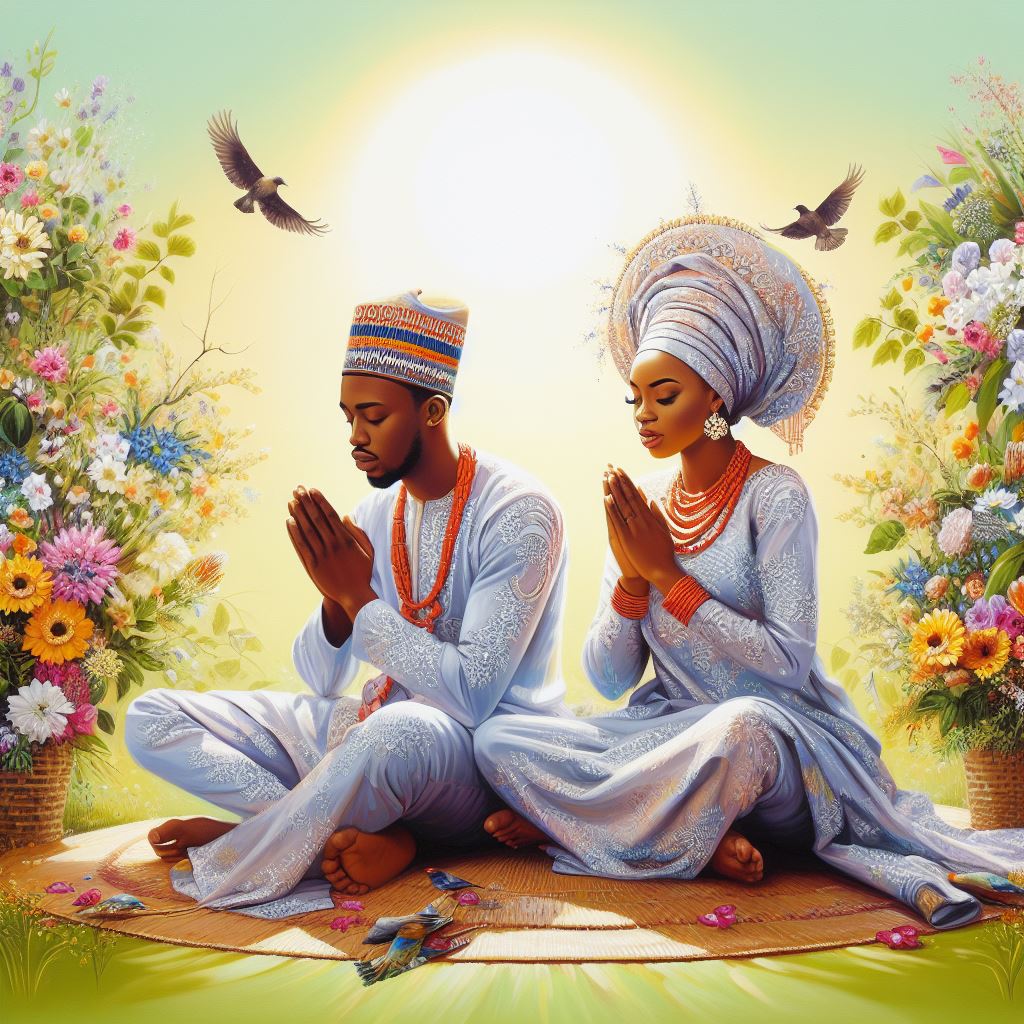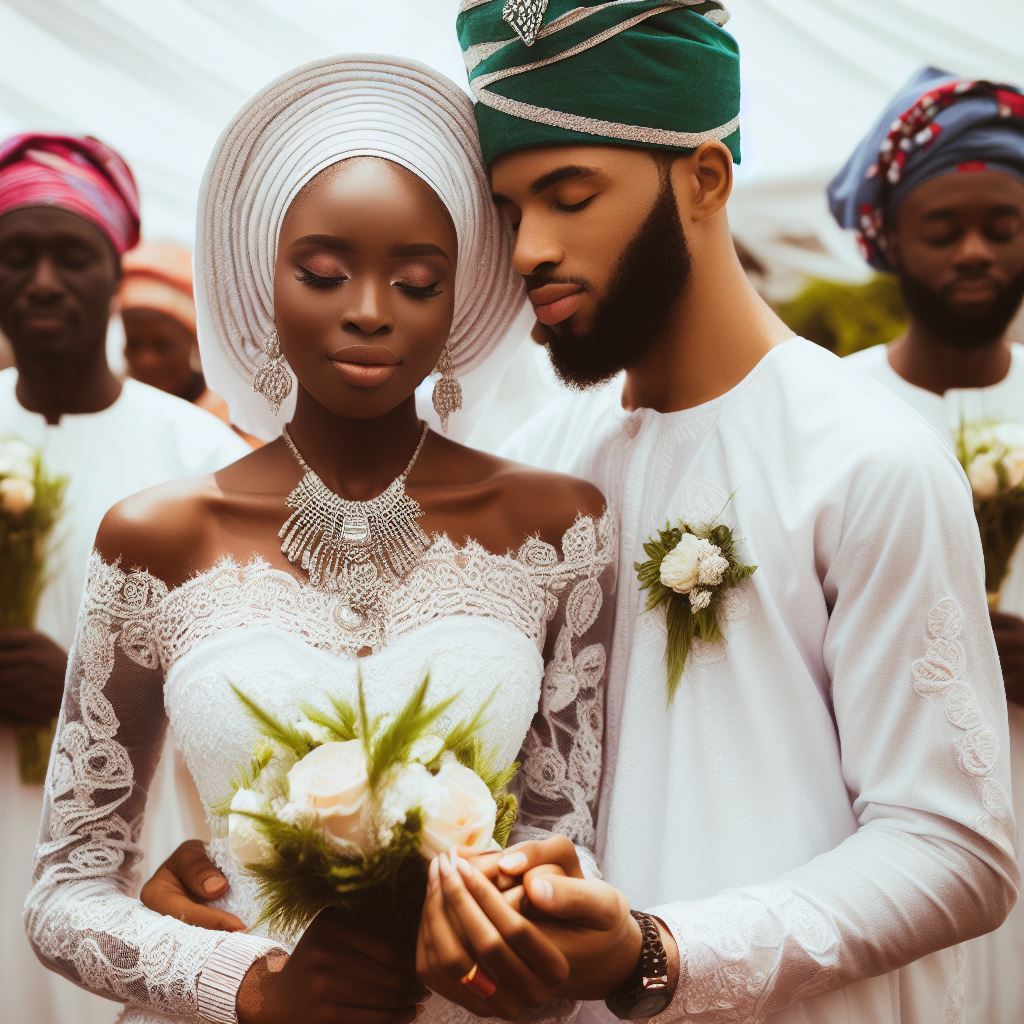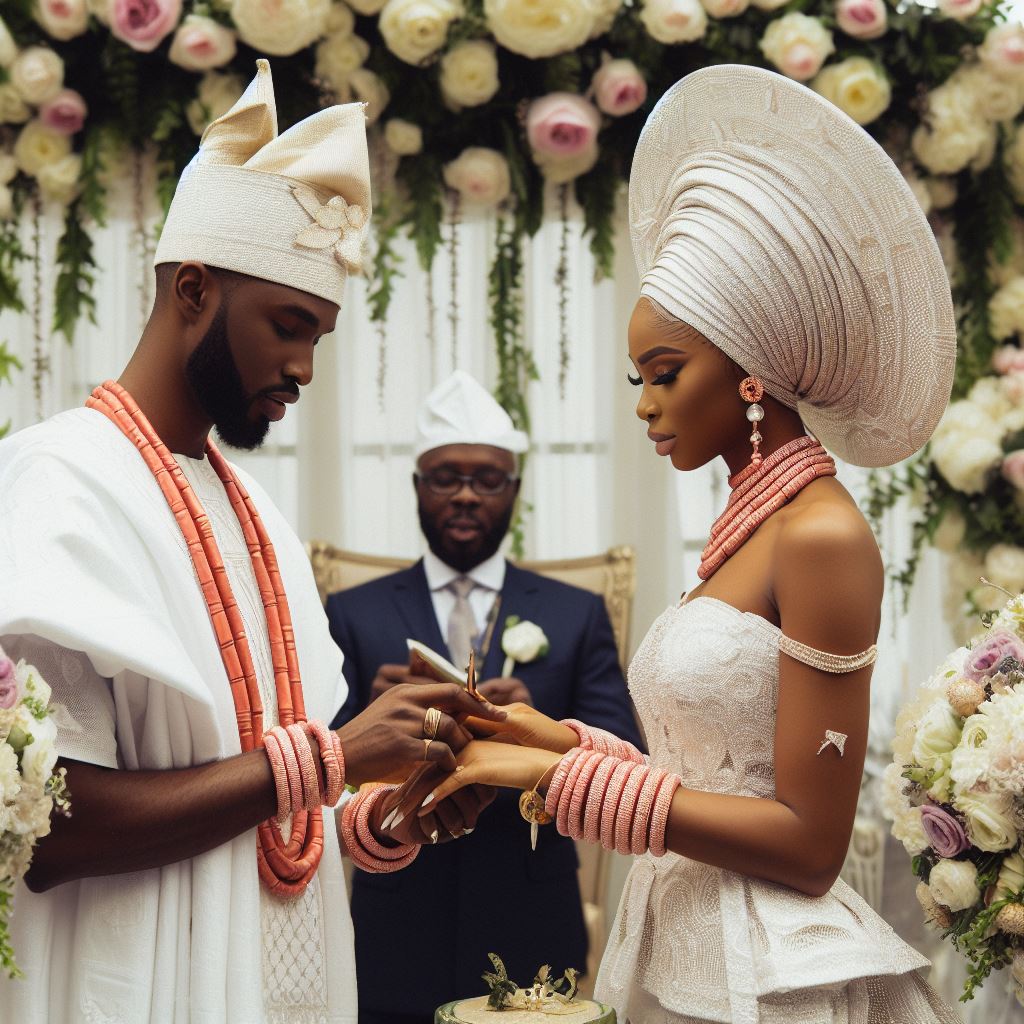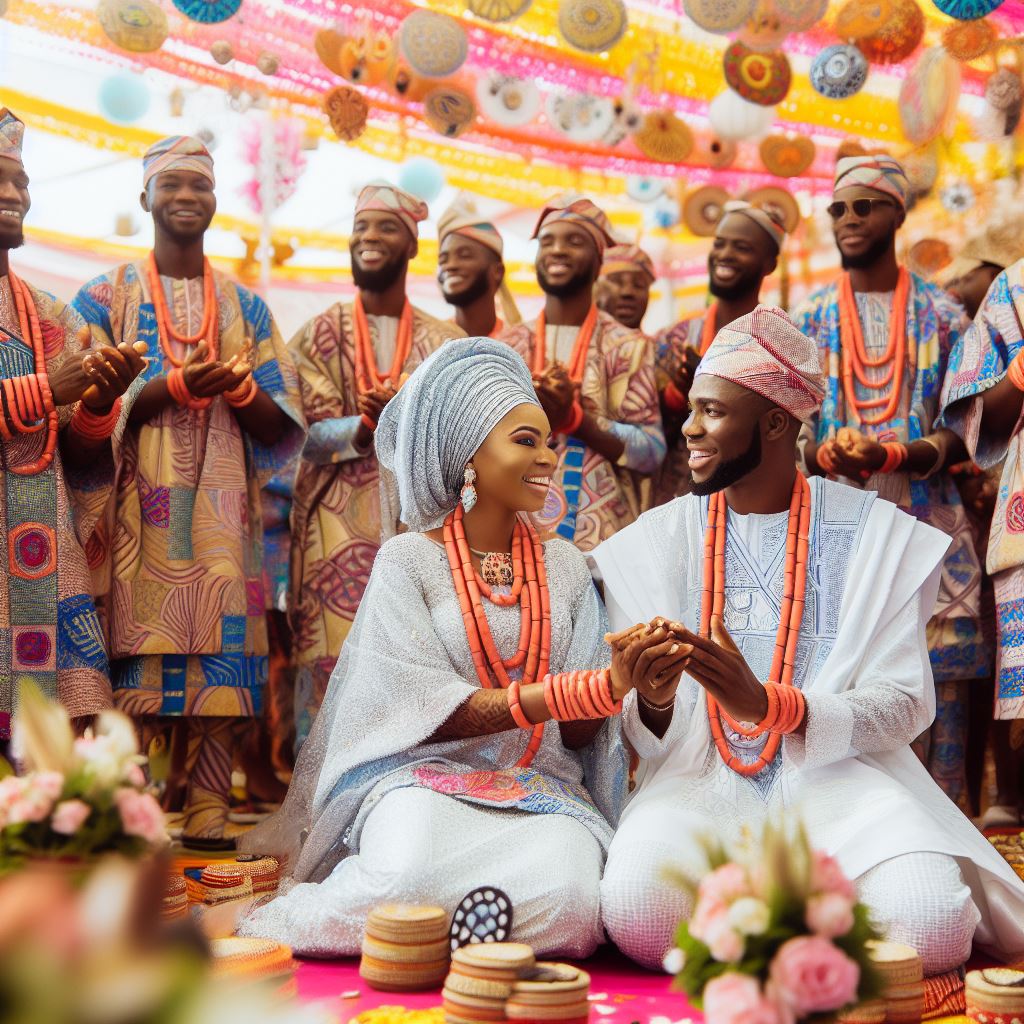Introduction
In this section, we will explore the concept of intercultural marriages and why understanding cultural differences is crucial.
We will also provide an overview of Nigeria’s cultural diversity.
Intercultural marriages refer to unions between individuals from different cultural backgrounds.
These marriages are becoming increasingly common in today’s globalized world.
Understanding cultural differences is essential in intercultural marriages as it helps build a strong foundation of mutual respect and acceptance.
It facilitates effective communication and avoids potential conflicts arising from misunderstandings.
Nigeria is a country known for its rich cultural diversity.
With over 250 ethnic groups, each with its own traditions and customs, Nigeria offers a unique blend of cultures.
This diversity can be seen in various aspects such as language, food, clothing, music, and religious practices.
The multicultural society in Nigeria allows for the exchange and fusion of different cultural elements, making intercultural marriages more common and accepted.
However, it does not mean that challenges and adjustments are not required.
In the following sections, we will explore the experiences and challenges faced by couples in intercultural marriages in Nigeria.
We will delve into the dynamics of cross-cultural relationships and provide insights on how to bridge cultural differences effectively.
Stay tuned for an in-depth exploration of intercultural marriages in Nigeria and the importance of embracing cultural diversity.
Advantages of Intercultural Marriages in Nigeria
Intercultural marriages in Nigeria provide several advantages that contribute to the enrichment of cultural knowledge.
Enrichment of cultural knowledge
- By marrying someone from a different culture, individuals have the opportunity to learn about their partner’s customs, traditions, and beliefs.
- This exchange of cultural knowledge allows both partners to broaden their understanding and appreciation of different ways of life.
- It creates a space for the celebration of diverse cultural practices, fostering tolerance and respect for each other’s heritage.
- Intercultural marriages provide a unique opportunity for individuals to experience firsthand the richness and diversity of Nigeria’s cultural landscape.
Exposure to new traditions and customs
- Marrying someone from a different culture exposes individuals to new traditions and customs that they may have never encountered otherwise.
- Partners get to celebrate each other’s festivals and engage in cultural activities together.
- They can learn new skills such as cooking traditional meals, speaking a different language, or participating in cultural dances.
- This exposure to different ways of life enhances personal growth and expands one’s worldview.
Broadening of perspectives and worldview
- Intercultural marriages challenge individuals to question their own cultural biases and preconceptions.
- By experiencing different cultural practices within their own homes, partners develop a more open-minded and inclusive perspective.
- They learn to appreciate the beauty of diversity and understand that there is no one “right” way to live or understand the world.
- Intercultural marriages cultivate empathy, compassion, and the ability to navigate through cultural differences.
In fact, intercultural marriages in Nigeria offer numerous advantages that promote cultural enrichment, exposure to new traditions, and broadening of perspectives.
By embracing the diversity within their own homes, couples can contribute to a more inclusive and tolerant society.
Read: Dealing with Family Pressures: Ordinance vs. Traditional Weddings
Challenges Faced in Intercultural Marriages in Nigeria
Language Barriers
Intercultural marriages in Nigeria often face challenges due to language barriers.
Communication becomes a crucial element in such relationships.
When partners speak different languages, it can lead to misunderstandings and difficulties in expressing thoughts and emotions.
- Communication breakdowns occur when partners cannot understand each other’s language fluently.
- Learning the other person’s language can be time-consuming and requires a lot of effort.
- Misinterpretation of words or phrases can lead to conflicts or hurt feelings.
- In social gatherings, one partner may feel isolated due to not being able to participate fully in conversations.
Differences in Religious Beliefs
Religious beliefs play a significant role in Nigerian culture, and differences in religious affiliations can create challenges in intercultural marriages.
- Disagreements may arise regarding the role of religion in daily life and raising children.
- Celebrating religious holidays and participating in religious practices can become a point of contention.
- Family members may exert pressure on the couple to convert to their religious beliefs, causing conflicts.
- Partners may face criticism or discrimination from their respective religious communities.
Conflicting Family Values and Expectations
Intercultural marriages often face conflicts due to differing family values and expectations.
Each partner’s family may have different customs, traditions, and ways of life.
- In Nigeria, the extended family plays a significant role, and expectations regarding familial responsibilities can vary.
- Differences in parenting styles and expectations for the roles of women and men can cause clashes.
- Traditional gender roles and expectations may clash with more progressive ideas held by one partner.
- Resolving conflicts between the expectations of both families can be challenging, leading to stress and tension.
Navigating these challenges requires open communication, compromise, and respect for each other’s cultural differences.
Here are some strategies that can help overcome the obstacles faced in intercultural marriages:
- Language Barriers:
a. Enroll in language courses or classes together to improve communication skills.
b. Utilize translation tools and apps to assist in understanding each other. - Differences in Religious Beliefs:
a. Engage in open and respectful discussions about each other’s religious beliefs.
b. Find common ground and compromise on religious practices and traditions.
c. Seek support from understanding religious leaders or communities who embrace interfaith marriages
. - Conflicting Family Values and Expectations:
a. Establish clear boundaries and expectations with both families.
b. Educate each other about your respective traditions, customs, and values.
c. Encourage open dialogue and compromise when dealing with conflicting family expectations.
d. Seek professional counseling or therapy to navigate complex family dynamics.
In short, intercultural marriages in Nigeria face various challenges, including language barriers, differences in religious beliefs, and conflicting family values.
Open communication, understanding, and mutual respect are essential to overcoming these obstacles and building a successful intercultural relationship.
With patience, compromise, and a willingness to learn, intercultural marriages can thrive and serve as a bridge to bridging cultural differences in Nigeria.
Read: Nigerian Marriage: A Bond Beyond Love and Romance
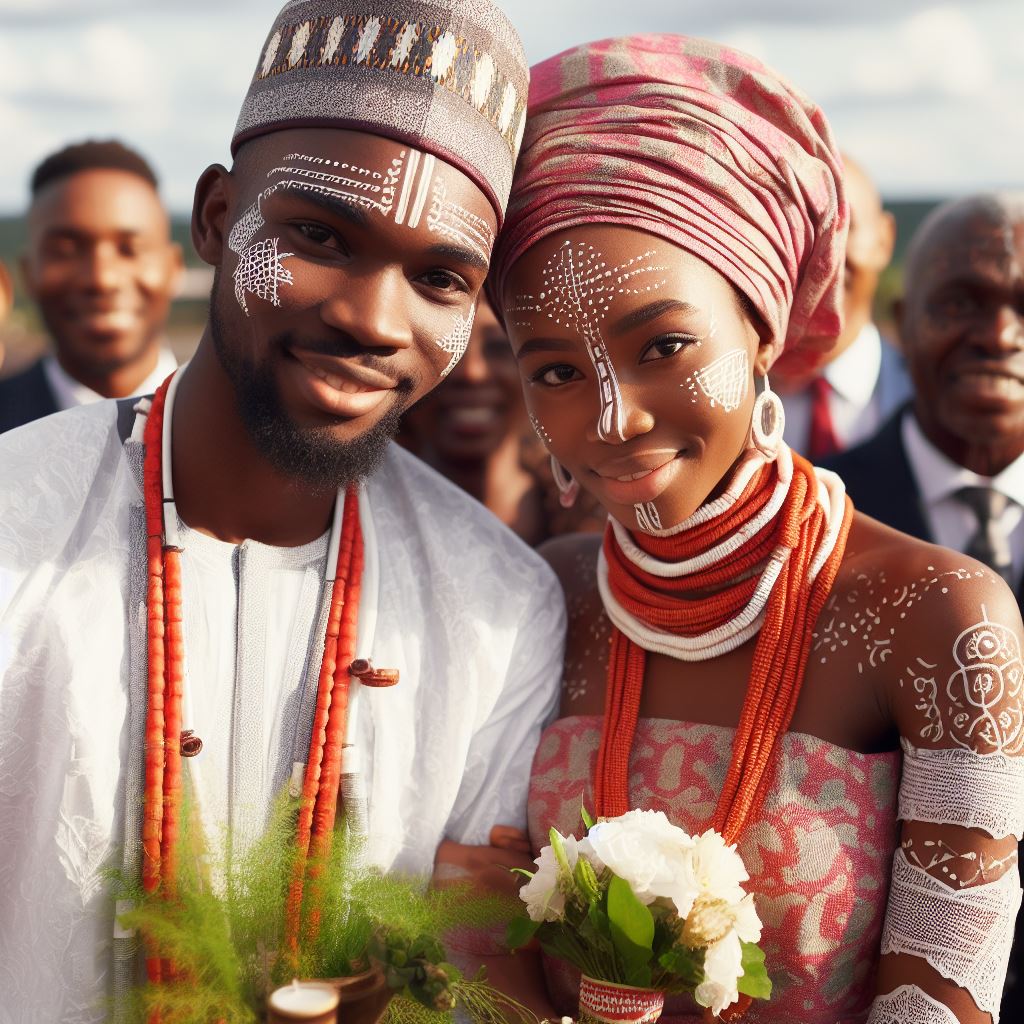
Strategies for Bridging Cultural Differences in Intercultural Marriages
Effective communication and active listening
- Cultivate open and honest dialogue to address cultural misunderstandings and conflicts.
- Practice active listening by fully focusing on your partner’s words and non-verbal cues.
- Seek clarification when needed and avoid making assumptions based on your own cultural lens.
- Respect and validate each other’s perspectives without judgment or prejudice.
Mutual respect and acceptance
- Embrace and appreciate each other’s cultural backgrounds, traditions, and values.
- Acknowledge that diversity enriches your relationship, offering opportunities for personal growth.
- Respect each other’s beliefs, customs, and rituals, even if they differ from your own.
- Avoid imposing your cultural norms or trying to change your partner’s cultural identity.
Compromise and finding common ground
Navigating intercultural marriages in Nigeria requires strategies:
- Compromise: Be willing to accommodate both partners’ cultural preferences.
- Shared Values: Identify common values or interests for understanding and harmony.
- New Traditions: Create rituals blending elements from both cultures, fostering inclusivity.
- Professional Help: Seek counseling if needed to navigate cultural challenges.
- Effective Communication: Cultivate open and honest dialogue, actively listen, seek clarification, and avoid judgment.
- Mutual Respect: Embrace and appreciate each other’s cultural backgrounds, respecting beliefs, customs, and rituals.
- Compromise and Common Ground: Be willing to adapt behaviors, find common ground, and create new traditions.
- Professional Guidance: Seek help to overcome cultural challenges and maintain a strong, healthy relationship.
- Determination, patience, and commitment to understanding and appreciating cultural differences are essential for thriving intercultural marriages.
Read: Financial Implications and Marriage in Contemporary Nigeria
Success Stories of Intercultural Marriages in Nigeria
Real-life examples and testimonials
- Ada and James, a Nigerian and American couple, share their inspiring intercultural love story.
- Ngozi and Diego, a Nigerian and Argentinean couple, talk about their successful intercultural marriage.
- Fatima and Mark, a Nigerian and British couple, share their journey through cultural differences.
Highlighting the key factors contributing to their success
- Open-mindedness: Successful couples exhibit a willingness to embrace and respect each other’s cultures.
- Effective communication: They prioritize communication to resolve cultural misunderstandings and conflicts.
- Shared values: A strong foundation of shared values helps navigate cultural differences in a harmonious way.
- Emotional support: Supporting each other and celebrating individuality strengthens the bond between partners.
- Adaptability: Successful couples remain adaptable to accommodate traditions and customs from both cultures.
Lessons learned from successful intercultural marriages
Intercultural marriages in Nigeria bring valuable lessons from successful couples like Ada and James, Ngozi and Diego, and Fatima and Mark:
- Open-mindedness: Respecting and embracing each other’s cultures.
- Effective communication: Prioritizing open and honest conversations to resolve misunderstandings.
- Shared values: Establishing a foundation to navigate cultural differences harmoniously.
- Emotional support: Providing unwavering encouragement and celebrating individuality.
- Adaptability: Embracing and incorporating traditions and customs from both cultures.
- Patience: Recognizing that understanding and acceptance take time.
- Education and exploration: Learning about each other’s cultures for deeper connection and appreciation.
- Compromise and flexibility: Finding middle ground and ensuring both partners feel heard and valued.
- Embrace diversity: Celebrate cultural differences for inclusivity.
- Respect and appreciation: Cultivate an environment of respect for a harmonious, loving relationship.
In essence, successful intercultural marriages in Nigeria exemplify the power of love and understanding in bridging cultural differences.
Real-life examples and key success factors offer valuable insights and lessons for couples navigating intercultural journeys.
With open-mindedness, effective communication, shared values, emotional support, adaptability, patience, and respect, love conquers all cultural barriers.
Read: Expert Tips for a Smooth ‘Marriage by Ordinance’ Registration Process
Conclusion
Recap of the benefits and challenges
Intercultural marriages in Nigeria offer numerous benefits, such as exposure to different perspectives and traditions.
However, they also present challenges, including language barriers and conflicting cultural norms.
Emphasis on the importance of understanding and bridging cultural differences
It is crucial for couples to prioritize understanding and respect for each other’s cultural backgrounds.
By actively bridging differences, couples can create harmonious and inclusive familial environments.
Encouragement for embracing intercultural marriages as opportunities for growth and unity
Despite the challenges, intercultural marriages should be seen as opportunities for personal growth and unity.
Through open-mindedness, compromise, and continuous learning, couples can build stronger and more resilient relationships.
Moreover, intercultural marriages contribute to societal integration and understanding among diverse communities.
It is therefore essential to celebrate and support intercultural marriages as they promote diversity and unity within Nigeria.

